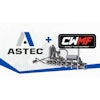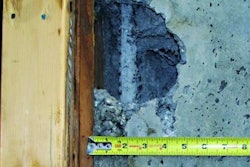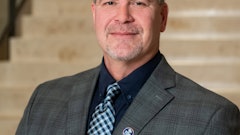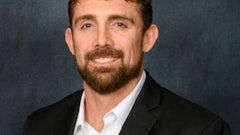The Association of Equipment Manufacturers (AEM) has released a revenue-neutral solution to rebuild and modernize America's highways without raising the gas tax. If put into practice, this sensible solution would solve a lot of problems - and let's repeat - it doesn't raise the gas tax.
The proposal was developed by Jack Schenendorf, former vice chairman of the National Surface Transportation Policy and Revenue Study Commission, of Counsel, Covington & Burling LLP, and Elizabeth Bell, Associate, Covington & Burling LLP.
"Both Congress and the President have recognized the severity of our infrastructure problem and the need to fix it," says Schenendorf. "But neither has been able to come up with a funding solution to pay for the increased investments. This proposal will provide the critically needed funding to modernize our surface transportation system, and allows Congress to increase transportation investment without raising motor fuel or diesel fuel taxes and with no increase to the debt or the deficit."
The revenue-neutral transportation funding proposal offers two alternative solutions: a Federal Interstate User Fee (FIUF) and a Federal Motor Carrier User Fee (FMCUF). Details can be found here.
According to AEM, there are several advantages to using this funding proposal:
No Tax Increase. The FIUF and the FMCUF are user fees. They would allow Congress to increase transportation investment without raising motor fuel or diesel fuel taxes.
Fair to Users. By dedicating all of the revenues generated by the user fees to benefit the users preserving and modernizing the Interstate System or financing freight-related projects, these mechanisms would establish a strong link between the user and purpose for which the fees are used. Moreover, the fees would be set at the minimum level necessary to pay for the improvements. No debt service payments. No diversion. No demand management fees to “price out” drivers from using the Interstate. And since the FIUF and FMCUF revenues would be supporting a pay-as-you-go system, users would only pay for work and improvements as they are completed.
National Policy. The Interstate Highway System is a national system governed by national policies and standards. A FIUF is consistent with that by establishing a national user fee mechanism for the entire Interstate. This will help to ensure that the system does not become balkanized by disparate state and local pricing policies.
No Increase in the Deficit or Debt. Revenues generated by the user fees would pay the full cost of the increased federal investment. Therefore, increased investment would not increase the federal deficit or the federal debt. In fact, over the long term it would help reduce the deficit and debt by promoting greater economic growth.
Modernizes Federal Financing Mechanisms. The FIUF and the FMCUF would be a much-needed step towards postgas tax revenue strategies.
Improves The Entire Federal-Aid Highway Network. The revenue generated by the FIUF would pay for preservation and modernization of the Interstate Highway System. The FMCUF-generated revenue would be used to pay for major freight improvements. This would free up existing HTF resources to pay for improvements to the non-Interstate portion of the National Highway System and the remaining Federal-aid highways. The entire national network would benefit.
Improves Competitiveness and Creates Jobs. Modernizing our national transportation network will make U.S. businesses more competitive. Over the long term, this will strengthen the U.S. economy and lead to greater private sector job growth. Another benefit would accrue in the short-term - greater economic activity and considerable job growth in the construction and construction-related industries.
Let's put a giant asterisk next to the last one – jobs, especially construction jobs, are in short supply all over these days. This solution seems sensible. Let's hope those in Washington can see that. Let me know what arguments you would have against the AEM proposal. Contact me at [email protected]. Thanks for reading!
A Sensible Solution
Jul 27, 2011
Latest in Business
EarthCam Launches Command Watch24 for Enhanced Jobsite Security
December 7, 2025
ABC Elects Thomas “Murph” Murphy as 2026 National Chair
December 6, 2025
Astec Enters Agreement To Acquire CWMF
December 5, 2025
SCANGRIP Rolls Out AREA 10 CONNECT Floodlight in North America
December 5, 2025



















